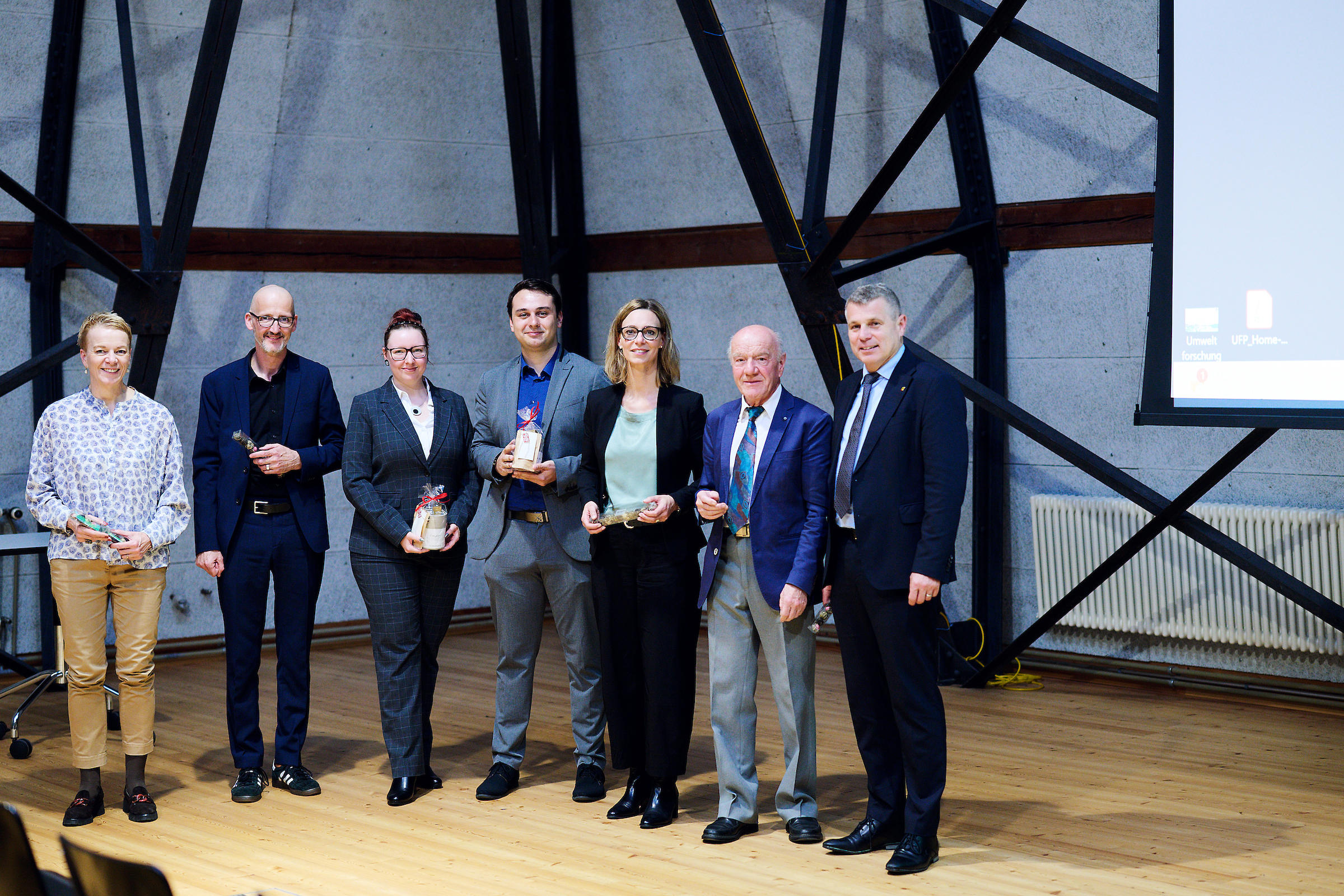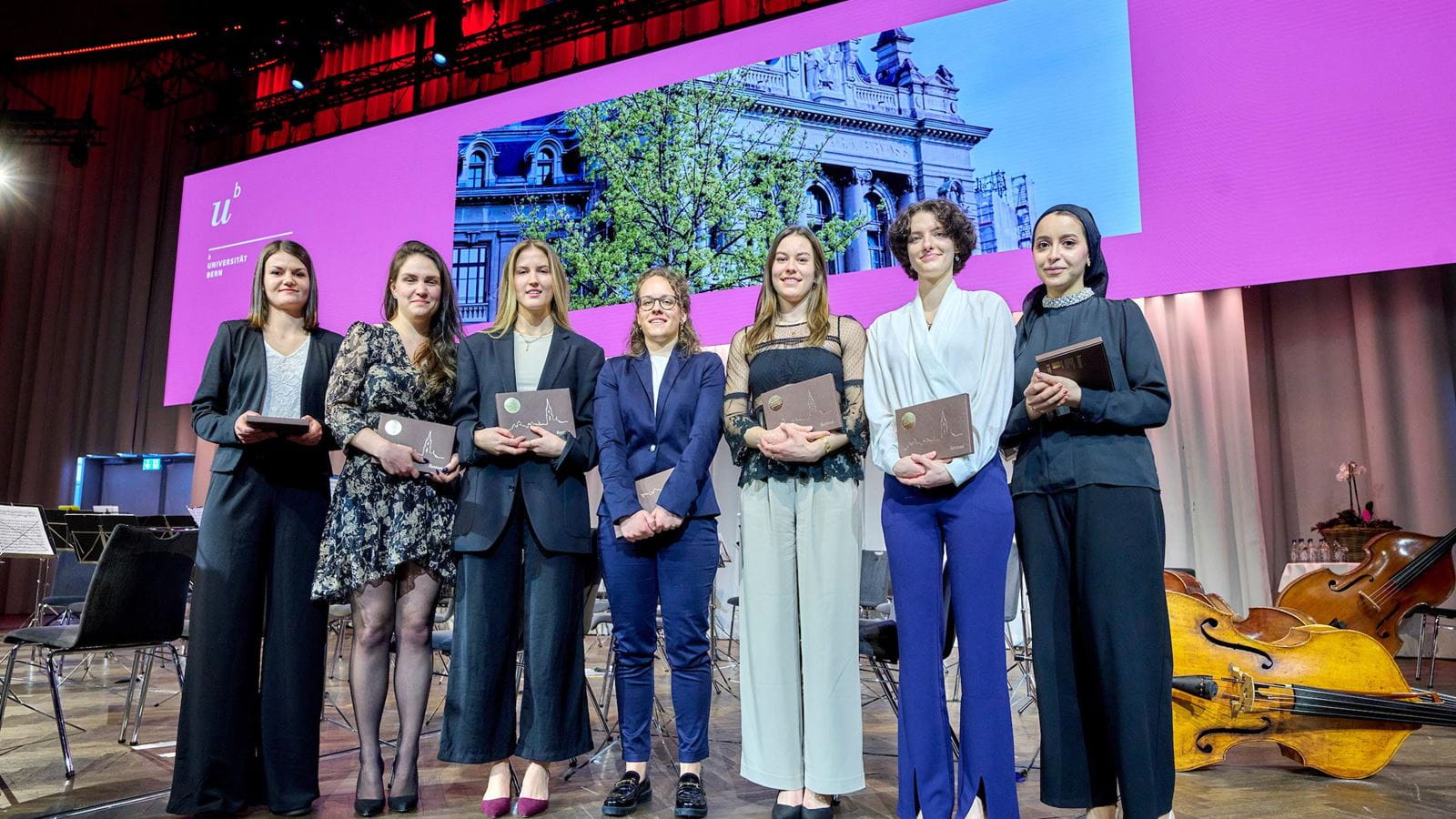CSL Behring honored talents in Biomedical Sciences and Environmental Sciences at two events in March. At the graduation ceremony for the "Biomedical Sciences" course at the University of Bern's Faculty of Medicine, Adrian Zuercher, Head of Research Europe, presented the three graduates with the highest grades with prizes of CHF 2,500, CHF 1,500 and CHF 1,000.
This year's winners were Isa Naima Uccelli, who received the top grade of 5.44 for her thesis "Elucidating the impact of vitamin D on regulatory T cell trafficking across the blood-brain barrier during neuroinflammation in vitro". 44"; Anna Kaufmann achieved a grade of 5.34 with her work "Neuronal ensembles underlying the representation of pain and anxiety in the mouse anterior cingulate cortex" and Sina Livia Schmid took third place with her work on "Modulation of neuronal activity in the anterior cingulate cortex in neuropathic pain" and a grade of 5.2.
Bernese environmental research awards for work on chemical energy storage and the impact of working from home on traffic volumes
In the presence of the future Rector of the University of Bern, Ms. Virginia Richter, Cantonal Councillor and Head of the Department of Economic Affairs, Energy and the Environment Christoph Ammann, Commission President Prof. em. Dr. Joachim Frey and other guests, the Bernese Environmental Research Prize, worth CHF 15,000, was awarded for the 14th time on 20 March in the domed room of the University of Bern.
Every two years, researchers are honored for outstanding scientific work that is of interest to politics, business and the public and provides food for thought for practical applications. This year, the main prize went to Dr. Nicolas Lentz. In his work on the hydrogen economy, he investigated the key role of formic acid in the safe storage and transportation of hydrogen as a promising approach to reducing global dependence on fossil fuels and associated CO2 emissions. The recognition prize went to Dr. Fabienne Wöhner. In her work, she investigated the question of whether commuting is reduced thanks to working from home and teleworking, thus reducing the overall volume of traffic and thus CO2 emissions - which, as Fabienne Wöhner was able to show, is unfortunately not necessarily the case due to the so-called rebound effect.
"It's this food for thought that can make a difference," said Adrian Zuercher, who represented CSL Behring as the main sponsor alongside Energie Wasser Bern at the ceremony. "Although our core business is in a different area, prizes like these allow us to look beyond our own horizons. The findings of this innovative work encourage us to ask ourselves: How can we solve 'old' problems with new approaches?"
In Bern, CSL Behring contributes to a more sustainable use of energy and raw materials, for example with a separate wastewater pipeline to the Bern wastewater treatment plant and the conversion of wastewater into biogas there, as well as heating the turf in the Wankdorf Stadium with waste heat from the refrigeration systems contribute to a more sustainable use of energy and raw materials.

" Prizes like these allow us to look beyond our own horizons and ask ourselves: How can we solve 'old' problems with new approaches? "
Adrian Zuercher, Head of Research Europe



